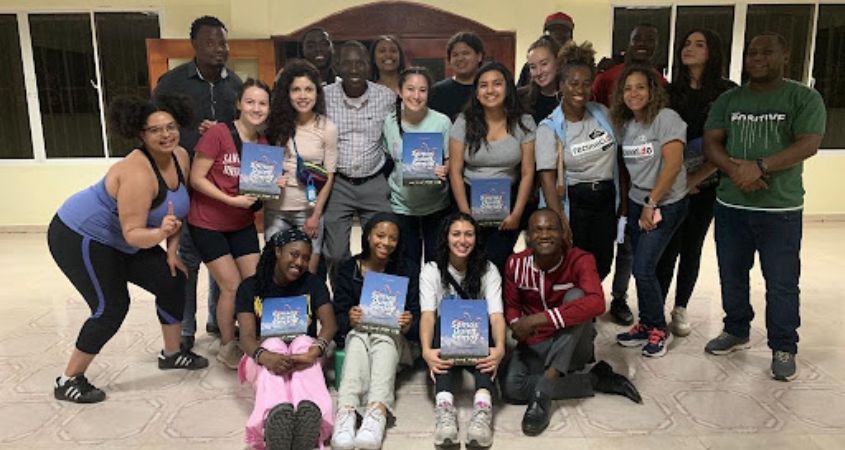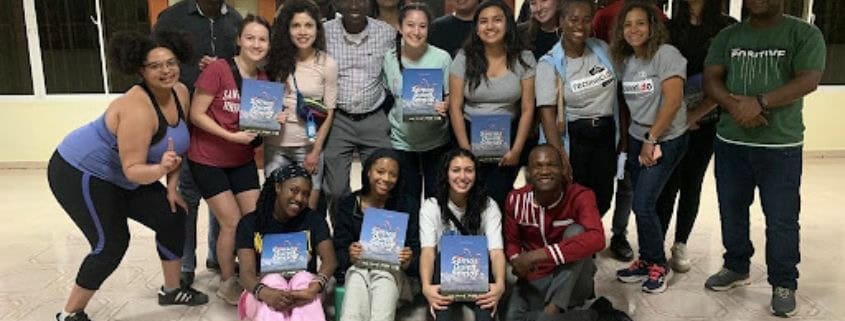Fostering an Ethic of Relationality and Critical Reflexivity within Immersion Learning
BY JESICA S. FERNÁNDEZ | June 2, 2023
From March 24 through April 1, 2023, I had the privileged opportunity, as well as the unique learning and growing experience, to accompany a group of ten Santa Clara University undergraduate students, a student facilitator, and an Ignatian Center for Jesuit Education staff member on an immersion program in the Dominican Republic. The theme of the immersion was “United Against Anti-Blackness.” For a week we learned about the realities experienced by Dominicans of Haitian descent as Reconoci.do organizers, activists and allies generously opened their homes and communities to share their stories of struggle and radical hopes with our immersion program group.

Some scholarly literatures have offered critical perspectives on the challenges of social service and experiential learning programs such as these where conditions of inequity, injustice and precarity serve as a real-life classroom, or an open textbook to illustrate and bear witness to the plunders of systemic power and oppression in ways that require deep introspection or critical reflexivity to process forms of trauma. These programs are incredibly nuanced and complex, and it is even more difficult to ensure that no harm is done both to the community and to the participants—in our case students, specifically Black students, given the themes of our immersion program.
For programs to succeed, there must be robust preparation provided before the travels, and clear expectations paired with the best of intentions to do no harm. Yet despite all efforts some programs can reopen wounds, or create and reproduce “plantation politics” that leave structures of whiteness, white supremacy, and anti-Blackness unchallenged. When this takes place, the learning opportunity is missed or compromised by the psychosocial, embodied, and emotional trauma of being othered and racialized. Creating opportunities before the immersion program to engage in critical reflexivity, accountability, consent and transparency about how racism or racialization may impact students, while witnessing its manifestations among the community, is imperative toward cultivating a meaningful learning experience where strategies to challenge and resist racialization are possible.
Our immersion program was a troubling and unsettling experience, especially for Black students. The racial formations within Latin America, specifically in the Caribbean—and in our case, the Dominican Republic—are distinct from the United States. Racialization, and anti-Black racism in particular, manifests differently within interpersonal, societal and structural relations. Racism must be understood within a sociohistorical, cultural and political context, and always through a critical social analysis of how power within relationships, systems, and institutions shape who is deemed deserving of rights and recognition, and who is denied. For example, over the course of our time in the Dominican Republic, I witnessed several expressions related to skin color, some referencing someone’s skin color through expressed words of endearment. These expressions, although devoid of malice, are nevertheless hurtful and dehumanizing. In other words, to call someone “morena” (dark skin) or “blanquita” (white) is to reify hierarchies based on skin color and/or phenotype that in turn serve to amplify a culture of colorism where the preference is most always oriented toward whiteness. Immersion learning experiences hold the potential to be culturally enriching experiences, yet in the absence of a conscious understanding or interrogation of power, racism and whiteness, such experiential forms of learning can lead to students of color feeling oppressed, marginalized and traumatized.
I recognize that some immersive learning experiences can fall short of supporting communities in struggle, and that inequitable and differential outcomes may result from voyeuristic modes of learning, which should be intent on being present and undoing and unpacking systems oppression. Nevertheless, I am radically hopeful of the possibilities, and calls to action to redress or change the structure of the immersion program curriculum at [Jesuit universities] in alignment with diversity, equity, inclusion, and racial justice/anti-racist praxes. Conscientiously engaging in critical reflexivity, accountability, consent, and transparency is a must for all immersive learning programs.
Jesica Siham Fernández is an assistant professor in the Ethnic Studies Department at Santa Clara University. Grounded in a decolonial feminist praxis, and informed by critical race and ethnic studies, she received her Ph.D. in Social Psychology and Latin American & Latinx Studies from the University of California, Santa Cruz. Jesica engages in community-based and participatory action research (PAR) paradigms, projects and collaborations to support Latinx communities, youth of color, and student activists in their sociopolitical wellbeing, thriving and liberation. She is the author of “Growing Up Latinx: Coming of Age in a Time of Contested Citizenship.”









Dress or skin color are external. Human beings are made in the image and likeness of the divine – declare Scriptures.